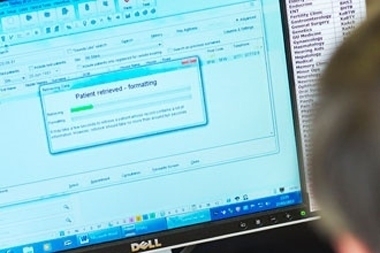How allowing one million patients to consult their GP online solved our appointments shortage

What we did
The Hurley Group is an NHS GP Partnership that operates practices and urgent care services in London. However, we were struggling to cope with patient demand for appointments. In 2013-14 we ran a pilot across 133,000 patients in 20 practices encouraging patients to use the practice websites as a ‘click first’ approach to accessing care.
The websites were enriched with self-management tools like symptom checkers and self-help materials. Patients could also choose to email their practice from the website using structured questionnaires that turned into eConsult summaries. These summaries came through to GPs in pdf form, allowing them to triage patients into those that needed an appointment, those requiring a phone call and those that could be managed based on the eConsult summary alone, for example with a prescription or fit note.
The questionnaires include red-flag questions that intercept patients with serious symptoms and direct them to urgent care services. This was an essential element of the model to avoid a significant event, for example when a patient eConsulted out of hours and didn’t realise their symptoms were urgent.
Using eConsult also ensured the whole history was taken in one go rather than the back and forth of email.
Results
The pilot demonstrated improvements in access, health outcomes and practice efficiency.
The patients were able to get immediate access to self-management tools from a trusted source, their GP website, and 95% of patients described their experience as good or excellent.
A third of patients used self-management tools and 18% then didn’t request the GP appointment they had planned to book. This means less demand for face-to-face appointments and shorter waiting times.
40% of patients were managed using the eConsult summary alone, 20% with an additional phone call and 40% needed a face-to-face appointment. All patient contacts, on the phone and in person were faster as the GP already had the patient history.
For every eConsult received, up to nine other patients used the self-management tools. Each eConsult took 2.9 minutes for a GP to review, so by reviewing only three eConsults, up to 30 patients benefitted from the GP’s ten minutes, equivalent to one appointment slot. Additionally, this service helped patients become more knowledgeable on how to manage their own issues.
The system diverted patients who were mostly planning to book an appointment. This minimised any supply-led demand – only 3% of patients who eConsult were not already planning seeked medical help. There was also an increased uptake of online booking and repeat prescribing.
Challenges
Ensuring patients are adequately informed of the service is key. Practices are asked to make sure they tell patients about it, put it on their answer machine message and place a prominent banner on their website.
Another challenge, which has strengthened the model, has been working with the medical defence organisations on an approved clinical governance model e.g. red-flagging serious symptoms.
The next steps
Although the existing model works with any software system, EMIS Health are working on automating the process for the eConsult to be integrated into the patient record. Work is also being done to code data such as smoking and alcohol status (two questions asked on every eConsult) to help practices gather this information for QOF. This will be available during the first quarter of 2016.
This started as an internal project in 2013, but is now available to over one million patients throughout England. This is set to increase as Hurley has now teamed up with the EMIS Health to assist with deployments, and so Hurley can focus on improving the model further. We are keen to stress that it should not be used to devalue the importance of what GPs do in a consultation – this human connection can never be replaced. However, it may serve as an example of what GPs can do with technology to improve their own efficiency for some scenarios.
Dr Arvind Madan is a GP Partner in the Hurley Group in London











